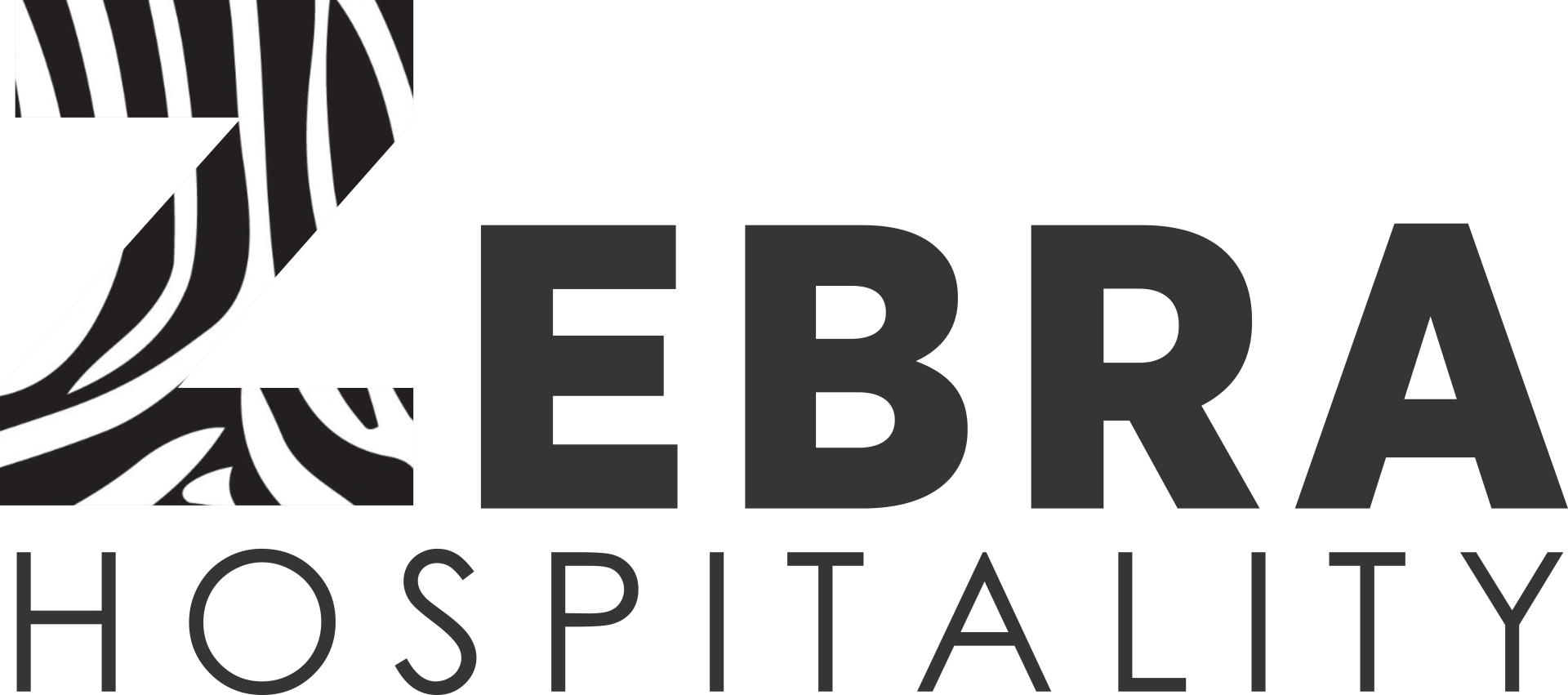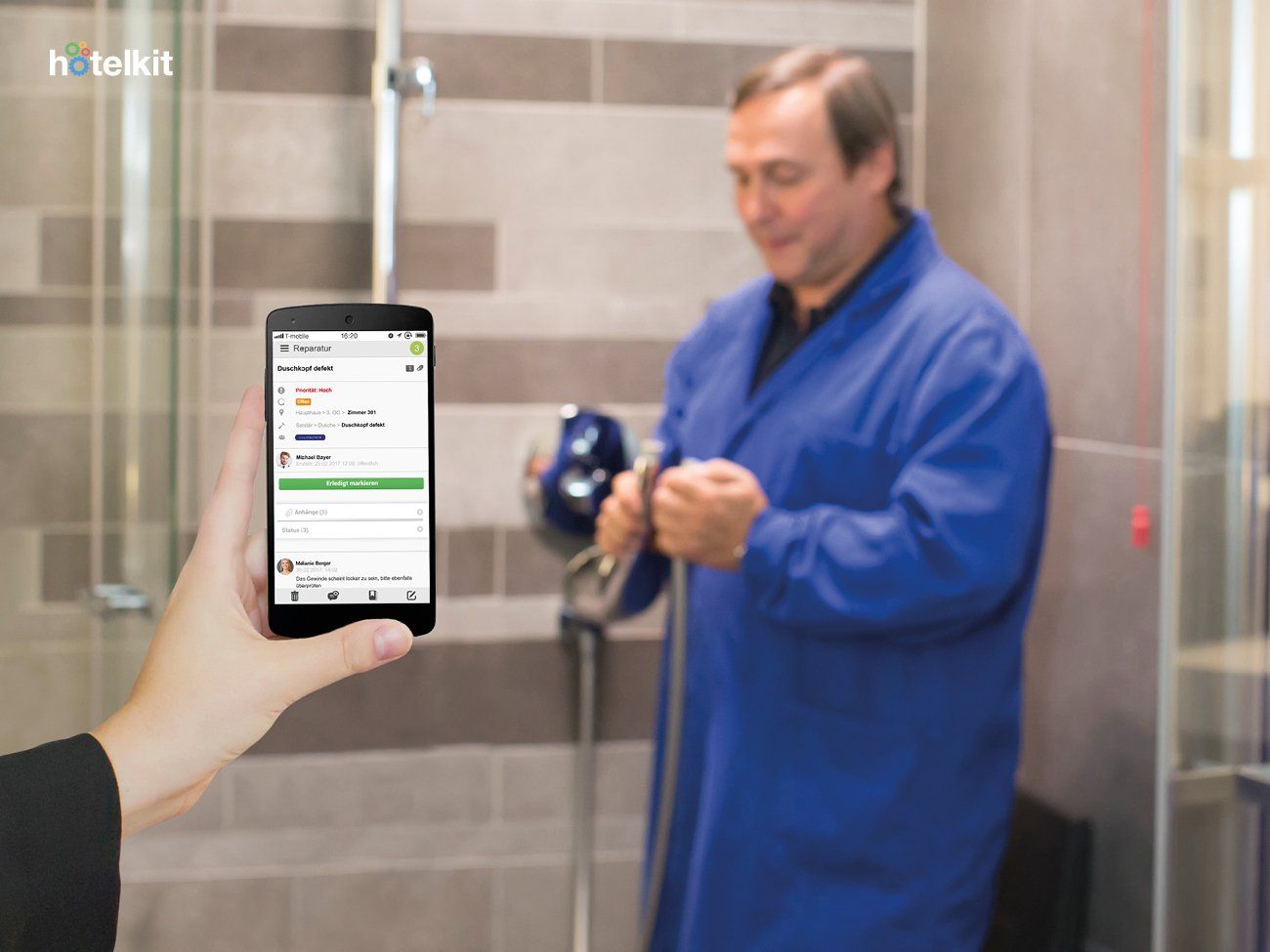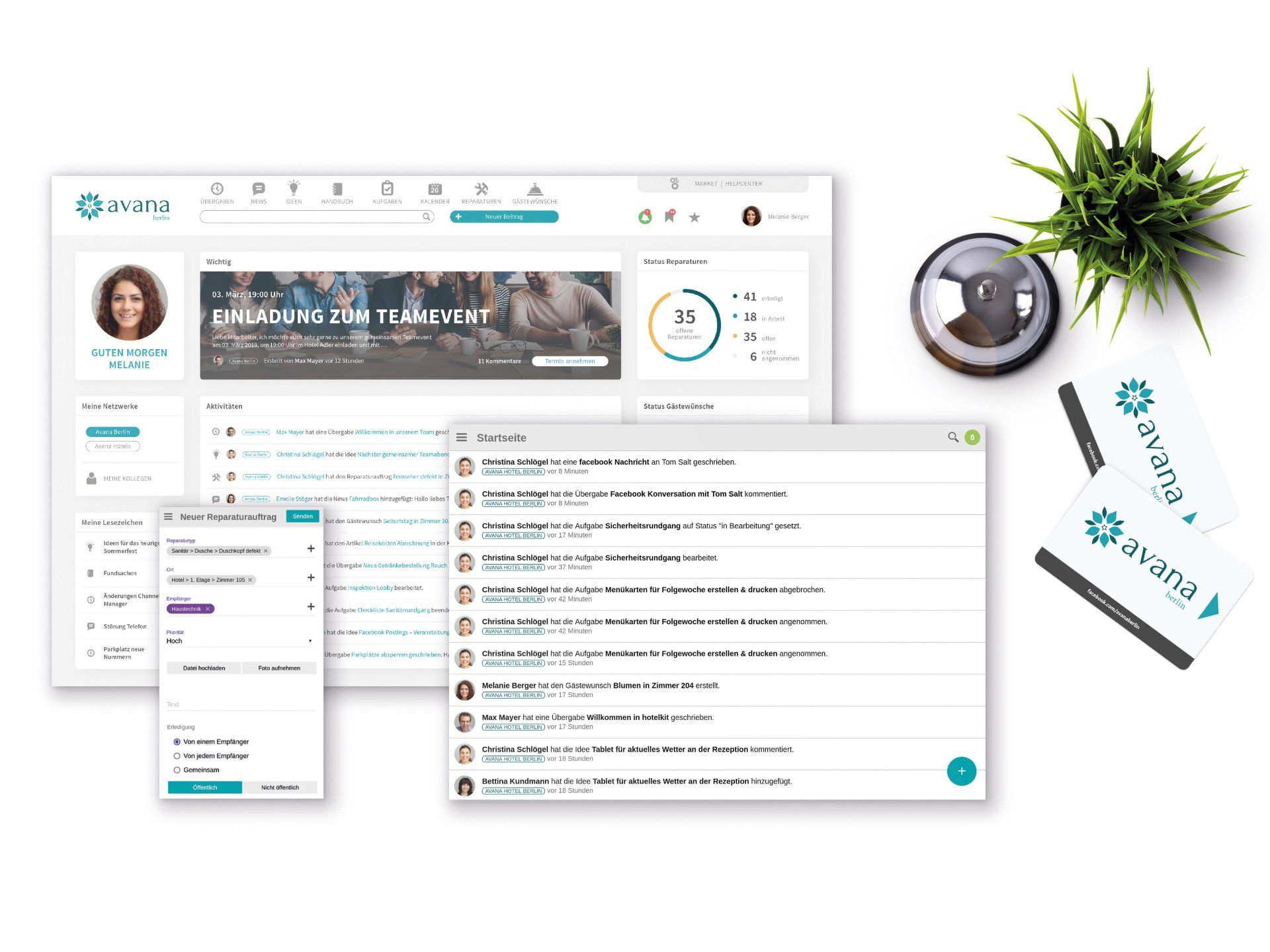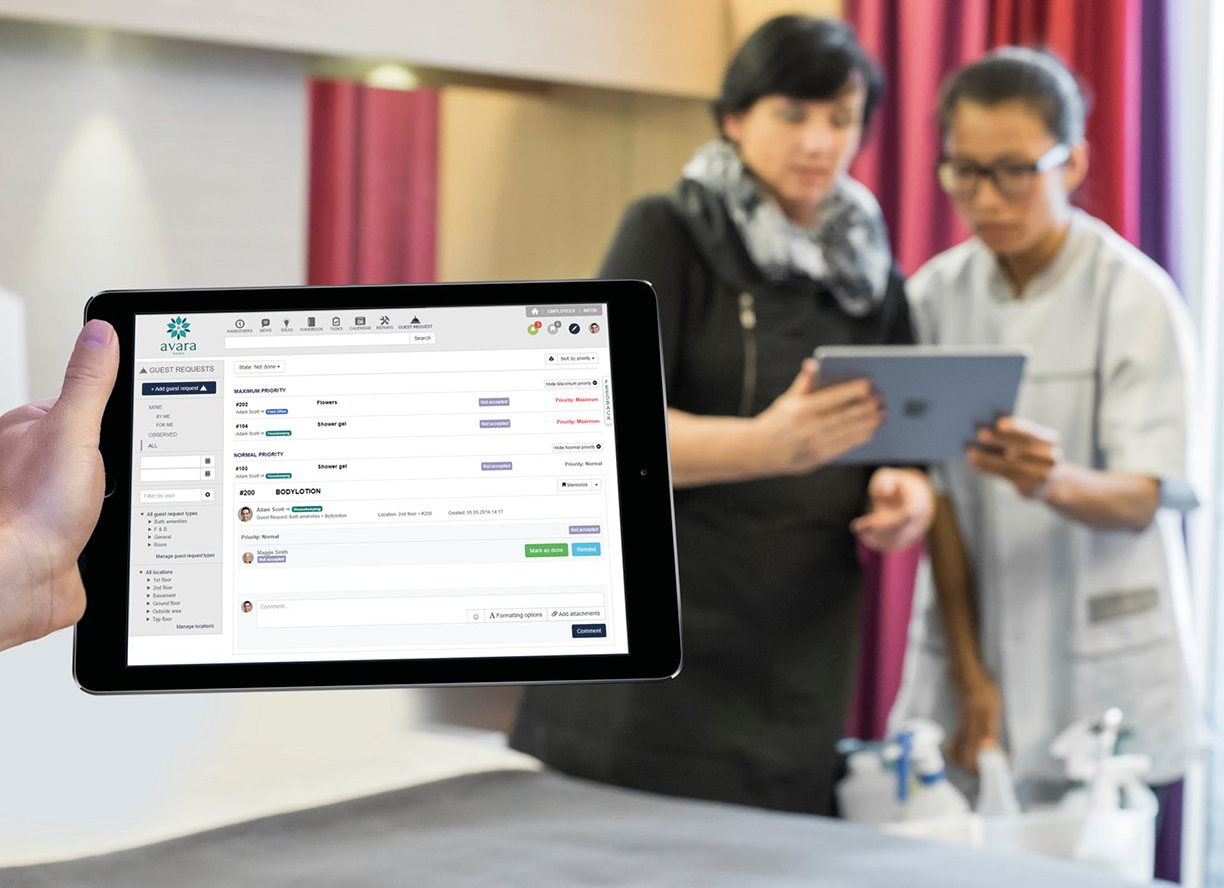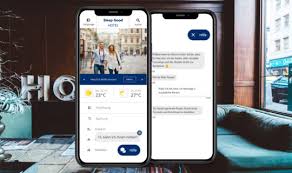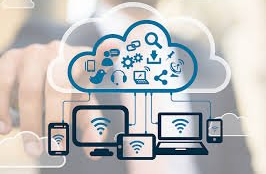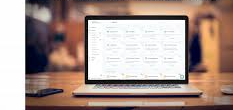Digitalization
The new "Swiss knife" to improve your property performance
COVID19 has accelerated the introduction of "touchless" systemes..
..
Digitalization and personalization of service as expected from the new generations of guests has only been addressed by -some- brands, which will incorporate considerably more “systems” to manage the hotel. Especially independent hotels are lagging behind in the use of digitalization thus ignoring the benefits for service delivery, operational efficiency and thus profitability.
The knowledge on these systems is not widely spread but they will make the difference between operating a “leading” property (on every level) or being part of “the rest”.
DIGITAL PROCESS MANAGEMENT & COMMUNICATION
Every day an enormous quantity and variety of different activities and requests from guests and operational departments needs to be managed, from assigning the task to the confirmation that it has been done. This can NOT be done with the patchwork of traditional checklists and forms and surely not efficiently or without affecting service delivery. A communication and process management tool like Hotelkit covers all these activities and a lot more. Issues are quickly dealt with, which improves guest satisfaction and gives us more time to focus on service delivery.
DIGITAL GUEST-INFORMATION
Digital guest information systems (DGI) can completely replace the traditional communication-media, such as flyers, menus, room-directories and can do much more. Beides the abundance of information DGI can provide, DGI are excellent communication systems with your guests, both in-house but also pre- and post stay. A good example is Code2Order which has a great functionality and does not require hardware in the hotel as it is BYOD (="Bring Your Own Device") nor an app to be downloaded by the guest. When linked to the PMS & POS it can handle:
- pre-and post-stay correspondence (reservation-confirmation etc.)
- online check-in
- booking of spa-treatments or sports-facilities
- ordering room-service
- provide free online reading newspapers & magazines,
- getting in touch with Reception, Concierge or Guest-Service
- reporting "issues" such as needed repairs or request for housekeeping through an interface with Hotelkit
Digital signage is another efficient communication tool for guests in the hotel which turn the TV's in public areas into dynamic and efficient message boards, which can also be used for marketing and increase revenue.
CLOUD-BASED PMS & POS
With the improved availability and reliability of broadband internet, it is no longer necessary to deploy heavy IT-infrastructure, such as servers etc., though some back-up-facilties are advisable. This causes dramatic cost-savings, higher flexibility and easier maintenance.
PERSONALIZED GUEST COMMUNICATION
Consumers/guests expect fast, easy and personal communication with a company. Communication with guests pre-, during and post-stay should be handled through a CRM Customer Relations Management system, which is interfaced with the PMS, Property Management System, to ensure personalized and accurate communication with the guests. The integration of various messenger services, possibly supported by a chatbot, will provide fast and efficient answers.
DIGITAL MANPOWERPLANNING
Manpower-planning a.ka. the "rosters" are traditionally made by hand, which is time-consuming and not efficient. Digital manpower-planning improves efficiency of the workforce, can link it to business level and is much faster to process and less prone to human error.
The manpower-planning software can be linked to the biometric staff-attendance-system and the HRM-management software to register and cross-check and support payroll-planning and salary-calculation. This will have a positive impact on profitability.
BUILDING MANAGEMENT SYSTEM
Building Management Systems enable the facility management / maintenance team to easily monitor and regulate the building's electrical, mechanical, security and other equipment such as power system, lighting, airconditioning, fire alarm and CCTV. Checking all these systems is otherwise done manually , which is inefficient and time-consuming and problems may go unnoticed. The BMS will alert in case of faults, will support power saving and make (preventive) maintenance more cost-efficient thus having a positive impact on the profitability.
